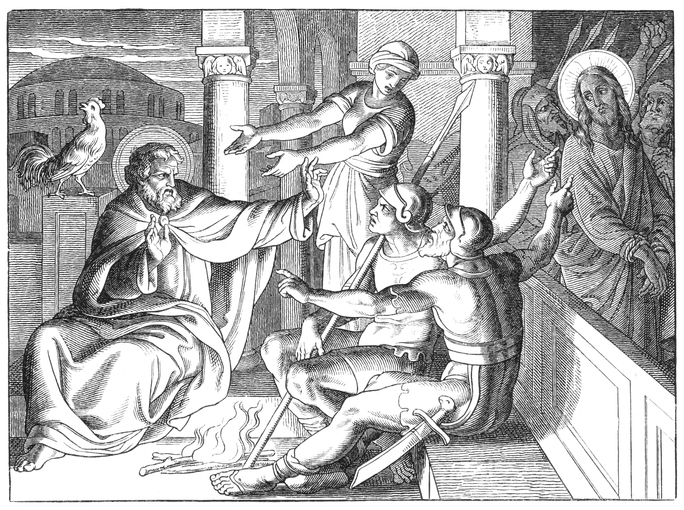“Jesus Christ, my sweet Master, presented Himself to me, all resplendent with glory, His Five Wounds shining like so many suns. Flames issued from every part of His Sacred Humanity, especially from His Adorable Breast, which resembled an open furnace and disclosed to me His most loving and most amiable Heart, which was the living source of these flames.” This vision received by St. Margaret Mary Alacoque in June of 1674 was one of her many revelations that helped establish the Catholic Church’s devotion to the Sacred Heart. It continued with Jesus expressing grief over mankind: “If only they would make Me some return for My Love, I should think but little of all I have done for them and would wish, were it possible, to suffer still more.” The readings for today are a meditation on what it means to “make a return” for Christ’s love amidst persecution and the mind-bending turmoil of life.
In the first reading found in Acts 25:13-21, St. Paul is being dragged before King Agrippa to be executed. Before the trial is finished, he gives a beautiful defense of the faith. By the grace of the Holy Spirit, he manifests a belief in God’s sovereignty that leaves him undeterred by the imminence of death. His conviction is echoed by the Responsorial Psalm in Psalm 103: “The Lord has established his throne in heaven, and his kingdom rules over all.”
Inspiring as it is to observe St. Paul’s courage under fire, such a witness can feel a bit intimidating, if not downright unattainable. In the Gospel reading of John 21:15-19, Peter is the one whose faith is being tested. On the night of Jesus’ arrest, the unspeakable shame and horror of the cross engulfed Peter’s devotion, and he denied three times even knowing the Lord. He quickly repented, but the damage was done. Fear had broken his spirit, and his love for Christ was no longer sure.
In John 21 after the resurrection, Jesus gave Peter the chance to put a word on what happened, to describe his own fidelity or lack thereof. Interestingly, Jesus didn’t use the name, “Peter,” a name meaning “Rock,” but returned to his old name, “Simon”:
“Simon, son of John, do you love me more than these?”
“Yes, Lord, you know that I love you.”
He said to him, “Feed my lambs.”
In the original Greek text, Jesus used the word “agapaō” for “love,” which means “willing or sacrificial love,” whereas Peter responded by saying that he only loved Jesus with “phileō” love, meaning “friendly affection.” This little conversation repeated itself twice until Peter was “distressed.” No matter how much Jesus desired heroic love from the man to whom he had entrusted his flock, Peter in all honesty could not claim it as his own.
Thankfully, the conversation did not end there: Jesus addressed Peter’s upset by describing “the kind of death [by which Peter] would glorify God.” Far from being a prophecy of doom, this prediction of his eventual martyrdom must have been a consolation. Just because Peter was not able to follow in Jesus’ footsteps right away did not mean that he would not follow afterward. The same is true for us. Our inability to love properly often results in a string of failures whereby we hurt others and we hurt ourselves.
St. Margaret Mary Alacoque suffered from her own inability to respond in kind to Christ’s great love. In another mystical encounter, Christ asked for her heart. When she gave it to him, she said he “placed it in His own Adorable Heart where He showed it to me as a little atom which was being consumed in this great furnace and withdrawing it thence as a burning flame in the form of a heart, He restored it to the place whence He had taken it.” When we approach Christ with Peter’s humility and allow him to forgive us, to love us, and to reconcile us with our brothers and sisters, we open ourselves up to the fire of his love. It is his purifying passion that empowers us to “make a return” and to give ourselves to the One who has given so much.

Nikol M. Jones is in her final year at Franciscan University’s Master’s in Theology and Christian Ministry program where it has been her joy to learn how to integrate the tools of modern biblical scholarship with the principles of biblical interpretation set forth by the Catholic Church in the service of the Word of God. She also has a passion for creating artwork and children’s books that honor the life and teachings of Christ. When she’s not studying or painting, she utilizes her writing and organizational skills as an administrative assistant. You can connect with her on LinkedIn at https://www.linkedin.com/in/nikol-m-jones-4b9893140/.
